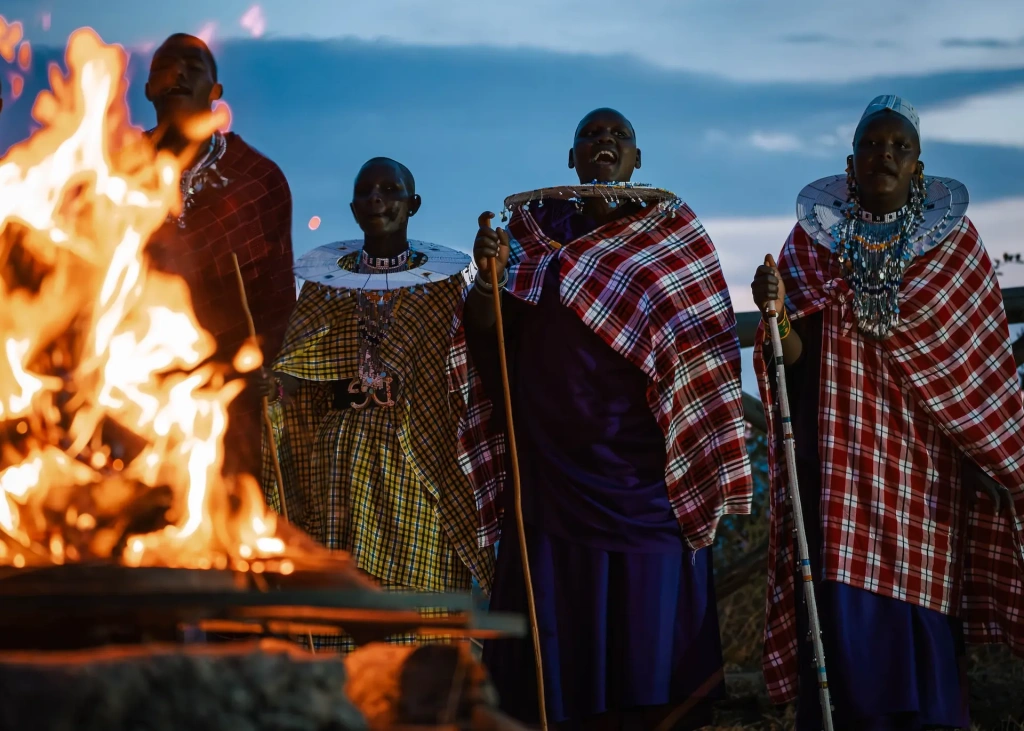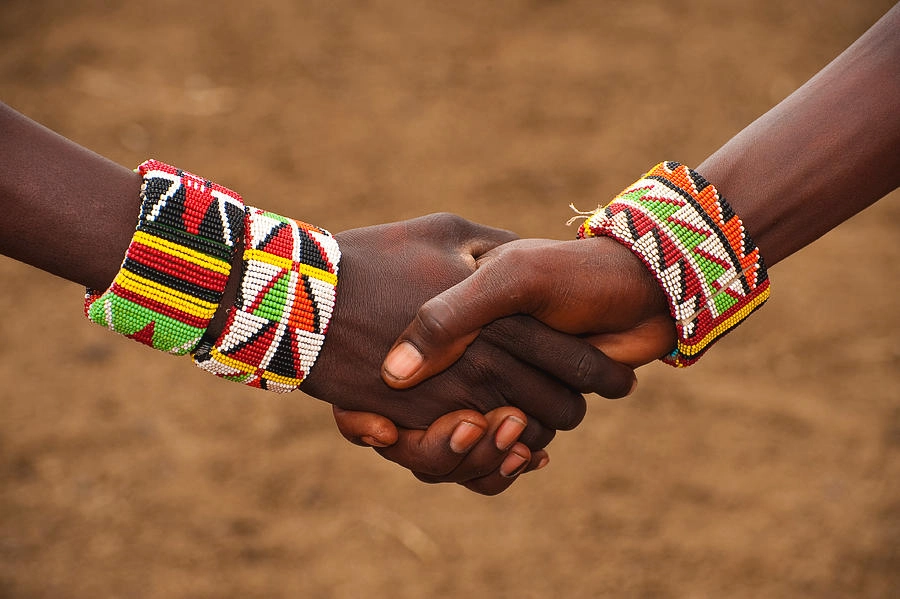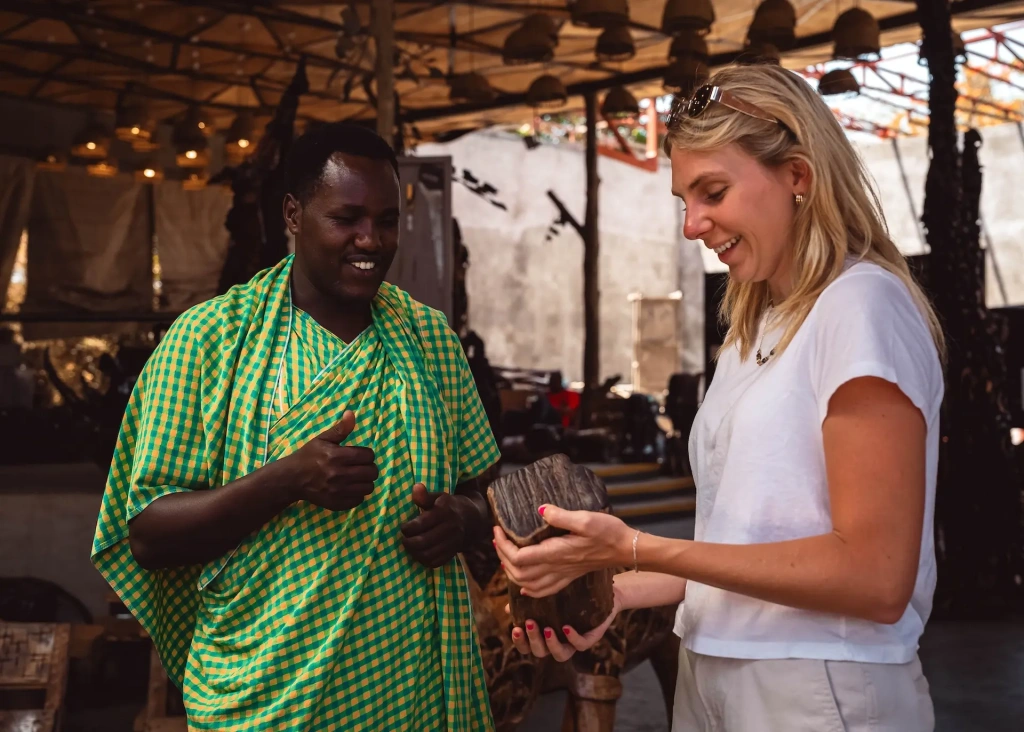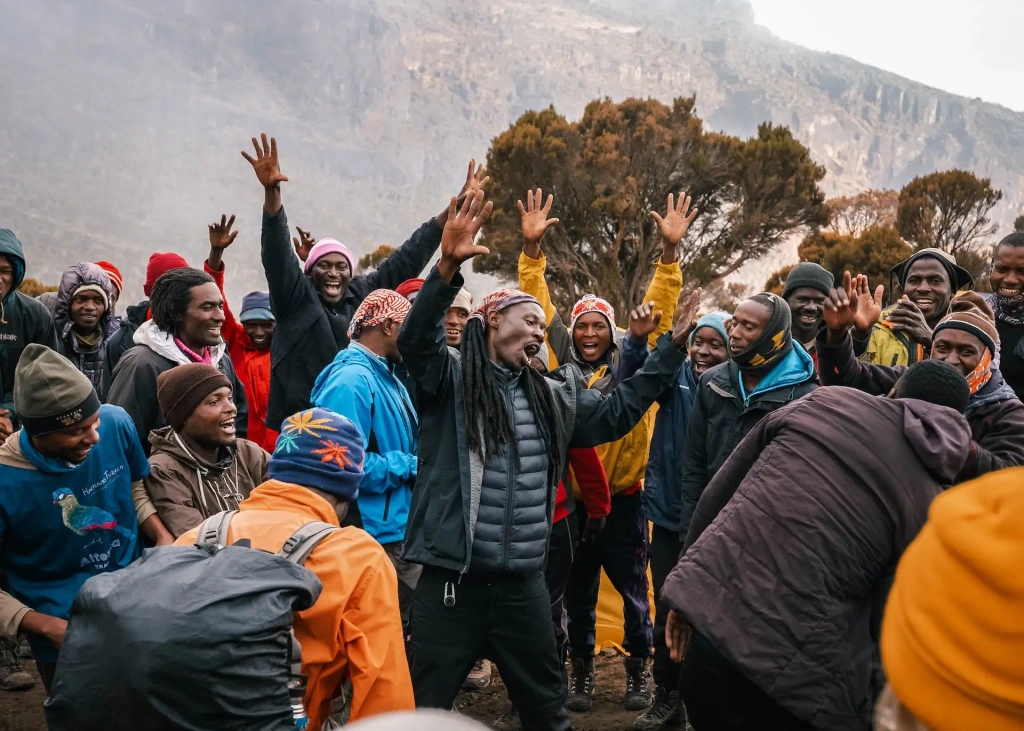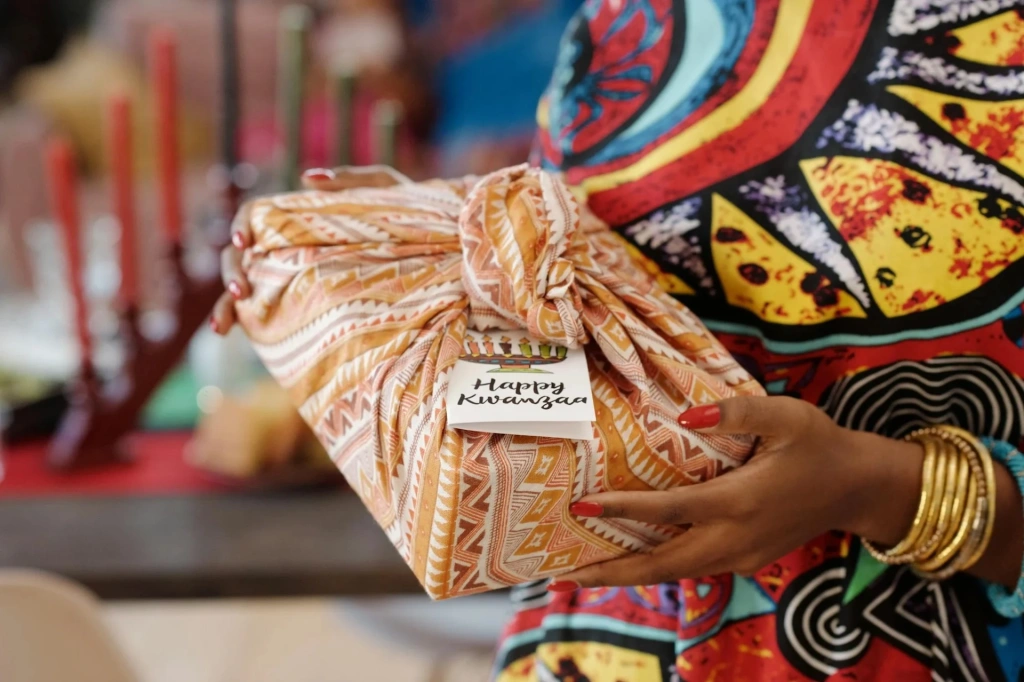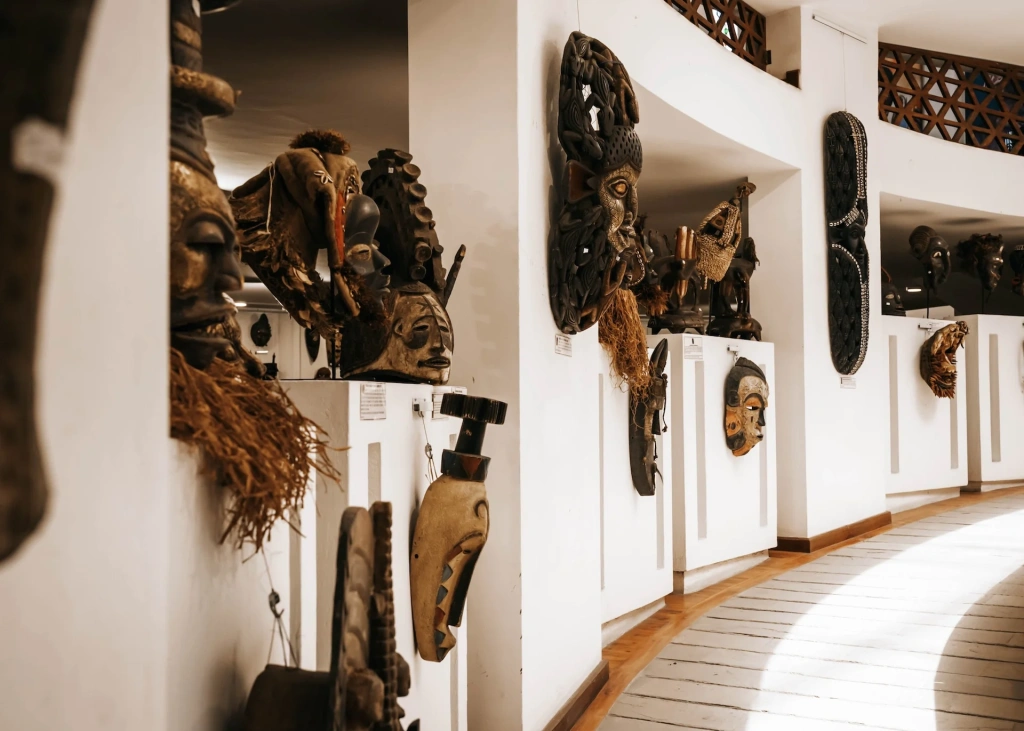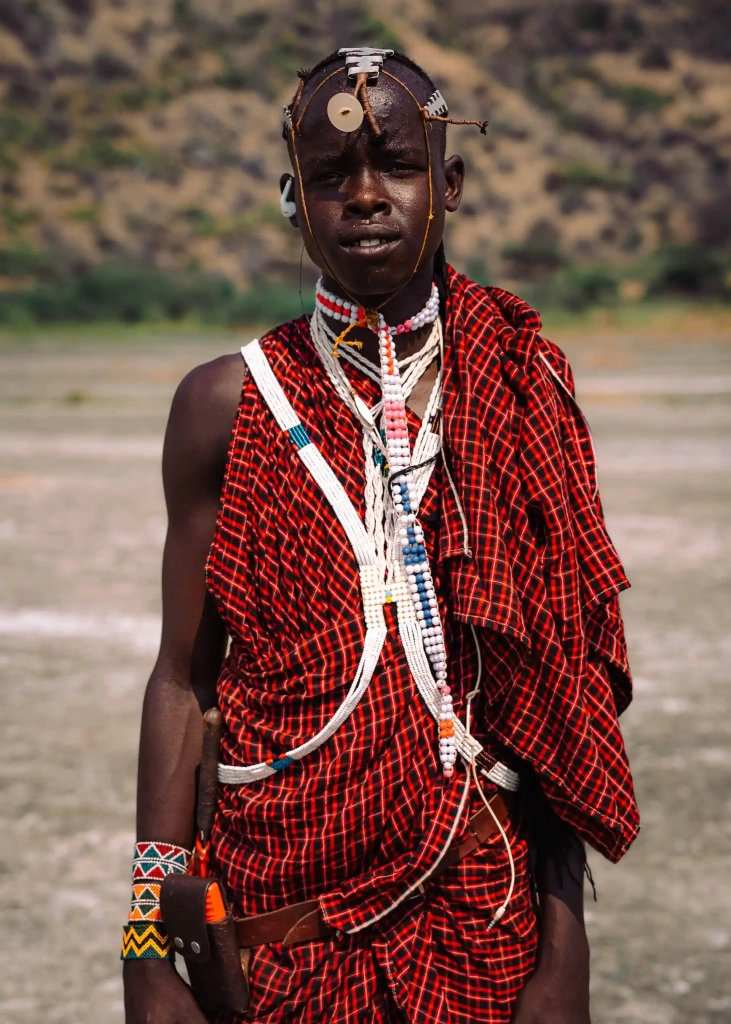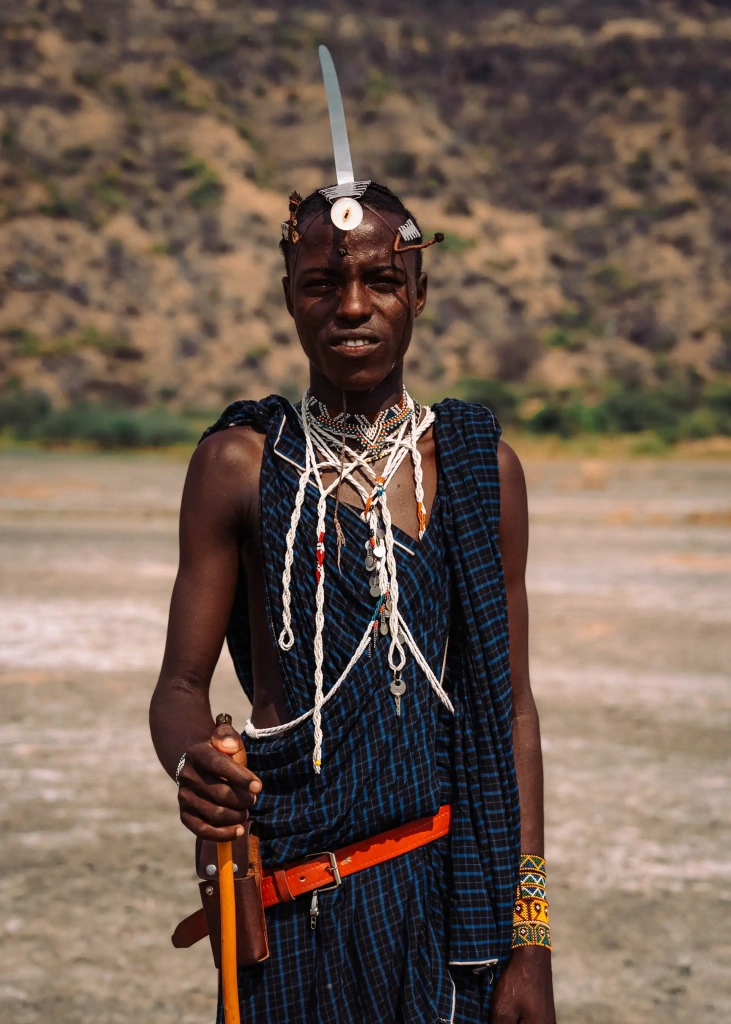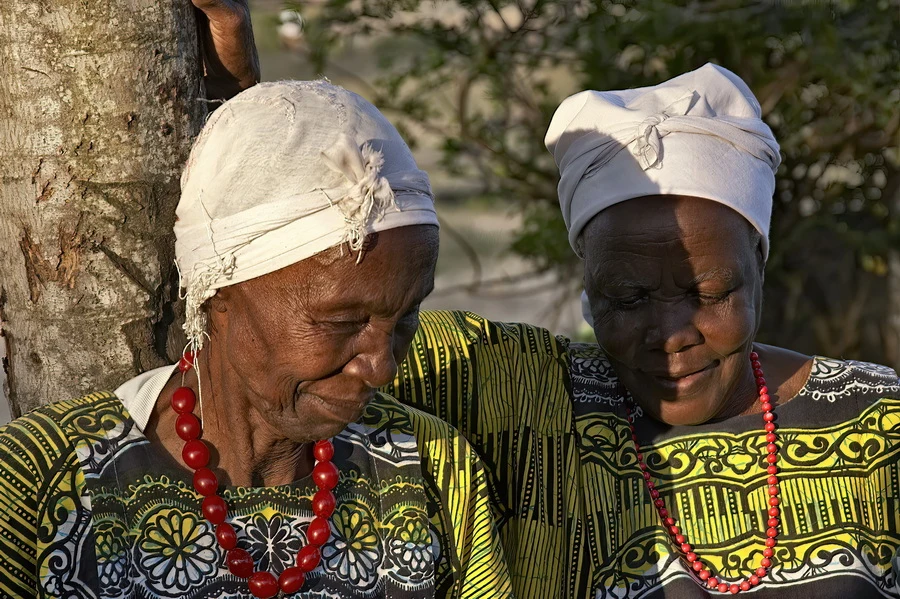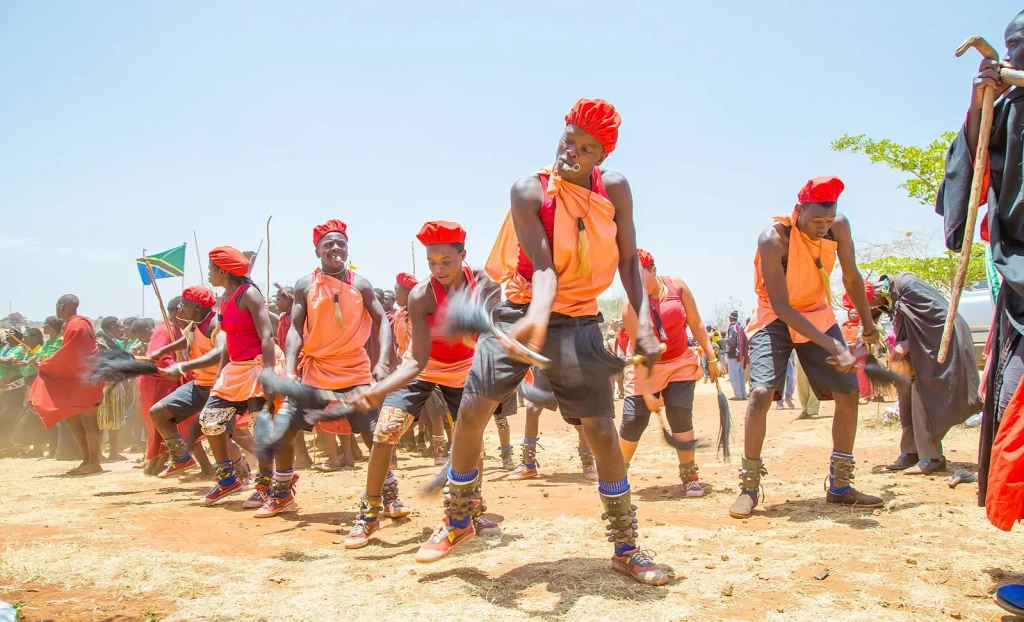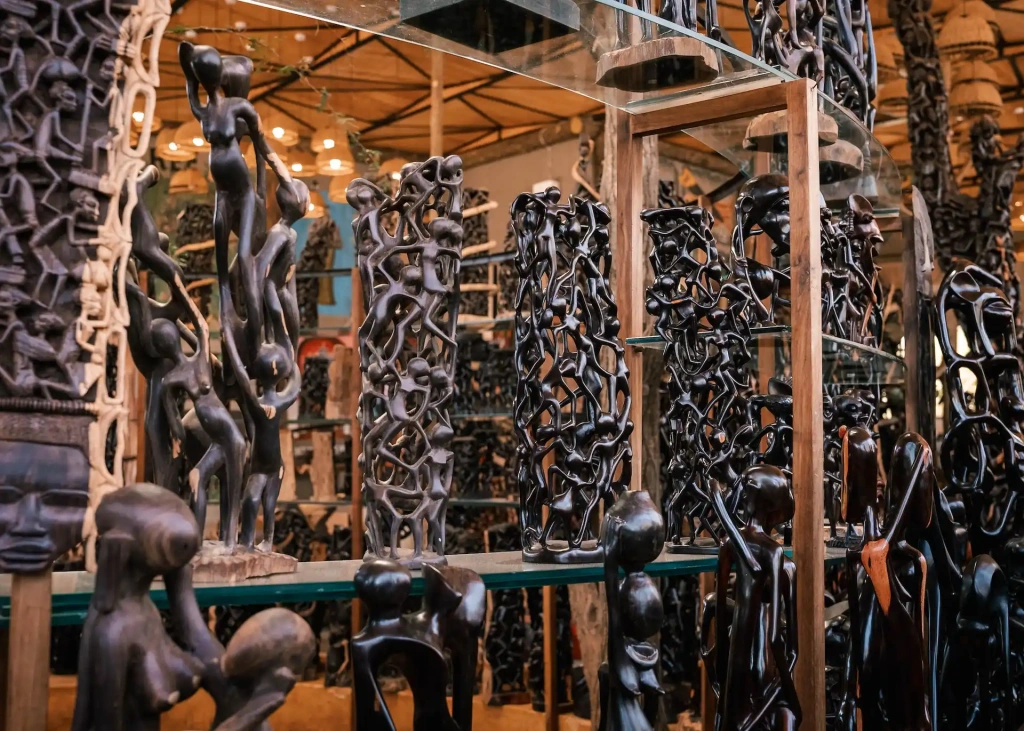Tanzania is a truly diverse country, home to over 120 different tribes, each with its own unique culture and traditions. From the proud Maasai warriors and the ancient ways of the Hadza, to the artistic flair of the Makonde and the hardworking Chagga farmers and traders, every group has helped shape the country’s identity. Due to this rich cultural mix, some things that seem normal to Westerners, whether it’s a gesture or a particular behavior, may seem unusual or even inappropriate in Tanzania. And of course, the reverse is also true.
That’s why it’s helpful to learn a few cultural tips before heading off on your East African adventure. We’ll walk you through some key etiquette tips, highlight what makes Tanzanian cultural heritage unique, and share a few of the most fascinating traditions from local tribes.
While traveling through East Africa, you’ll have the chance to experience the authentic lifestyle of some of Tanzania's tribes. For instance, the Maasai mostly live near the Ngorongoro Conservation Area and Lake Natron. The Sukuma are found in the north, especially around the southern shores of Lake Victoria. The Chagga call home the southern slopes of Mount Kilimanjaro (19,341 ft) and Mount Meru (14,980 ft), near the town of Moshi. The Hadza live between Lake Eyasi and Serengeti National Park, while the Hehe are based in the Iringa region.
You can visit a traditional Tanzanian village by joining a safari trip with the Altezza Travel team. To ensure you're fully prepared, don’t forget to download our PDF guide — it includes all the essentials for your safari adventure.

Tanzania cultural etiquette
Tanzanians are famously warm and polite, so even if you accidentally do something that goes against local customs, you probably won’t get called out for it. That said, you may easily catch a disapproving look if you ignore basic principles of local etiquette, such as dressing too revealingly or openly displaying romantic affection in public. Let’s review the key cultural norms in Tanzania that are essential to keep in mind during your trip.
Tanzanian dress code
Tanzania is a secular and culturally diverse country, but ideas about what is appropriate to wear in public can vary depending on the location. On the mainland, most people identify as Christians, primarily Catholics, but also Orthodox, Lutherans, Anglicans, and members of other denominations. That’s why the dress code in public places is relaxed, similar to that in many Western countries.
Things are a bit different in Zanzibar, where around 99% of the population is Muslim. Here, it’s customary to dress modestly, avoiding revealing outfits and refraining from walking around in swimwear. Local women typically wear covered clothing. The same dress code applies to visitors, but only in public areas.
If you walk around Stone Town wearing very short shorts, mini skirts, or revealing sundresses, there’s a chance someone might ask you to cover up. However, on Zanzibar’s beaches, feel free to sunbathe and swim in your usual swimsuits and trunks.
Tanzanian greetings
During your trip, you’ll notice that locals greet you with the word “Jambo.” What does “jambo” mean in Tanzania? In the Swahili language, it means “Hello” and is commonly used between peers or when speaking to someone younger. You might also hear “Habari,” which means “How are you?” This is another popular greeting, especially when meeting someone for the first time.
Respect for elders is a deeply rooted part of everyday life in Tanzanian culture. When greeting an older person, it’s common to say “Shikamoo,” which roughly translates to “I hold your feet.” The typical response from the elder is “Marahaba,” meaning “I accept your respect.” To show your reverence during a handshake, you can slightly bow and hold your right elbow with your left hand — this is a traditional gesture of deep respect.
Swahili (or Kiswahili) is the official language of Tanzania, serving as a medium among the country's diverse ethnic groups. Before your trip, it’s a good idea to learn a few popular Swahili words and phrases. This will help you navigate the area more quickly, find common ground with the locals, and feel at ease in the new environment.
When it comes to handshakes, it’s typical for men to shake hands with other men and for women to shake hands with other women. However, when a man and woman greet each other, a polite nod or slight bow is usually enough. Shaking hands between men and women isn’t the norm unless it’s a business situation, where a handshake is generally accepted regardless of gender.
Handshakes in Tanzania tend to last longer than in the West. Don’t worry if your conversation partner holds your hand for a while, as it’s just the accepted greeting norm here.
Communication styles in Tanzania
In Tanzanian culture, building personal connections is highly valued, so jumping straight to the point in a conversation can come across as rude. Start by showing genuine interest in the person you speak with: ask how they’re doing, how their day’s been, or how their family is.
In Tanzania, people often communicate in a more indirect way rather than directly addressing the topic. For example, if someone wants to ask you for help or a favor, instead of getting straight to the point, they might first share a long story or background about their situation. Being too direct is often seen as impolite. The same goes for saying “no” — it’s best to avoid a blunt refusal. Respond vaguely and explain the reasons why you can’t give a clear answer right away.
Additionally, a sense of humor plays a significant role in Tanzanian culture. Tanzanians love to laugh and often use humor to build rapport and make guests feel at ease.
Etiquette when visiting villages
Tourism plays a significant role in Tanzania’s economy, so travelers are treated with warmth and respect throughout the country. That said, when visiting villages, you might find that people are eager to sell you their goods: handmade souvenirs, carved figurines, household items, and accessories. It’s harmless, but be prepared for assertive sales tactics.
When taking photos, always ask for permission first. As a tourist visiting a local village, you will be accompanied by a guide. It’s a good idea to check with them what you can and cannot photograph. You may need to pay an additional fee to get permission to shoot.
Bargaining and tipping
While not mandatory, tipping is a thoughtful way to show appreciation for good service. In restaurants, it is expected to leave a tip of approximately 5–10% if the service charge is not included in the bill. Safari drivers and guides usually receive around $30–50 in tips per day. After climbing Mount Kilimanjaro for a week-long expedition, it is customary to leave about $300 in tips for the entire support team (guides, cooks, and porters).
Bargaining is both practiced and loved in Tanzania, so there are no fixed prices at markets here. There's no need to accept the first price offered — try to negotiate a lower one. Just remember to stay polite and patient throughout the process. While Tanzanians might get a little emotional during the back-and-forth, it’s never aggressive. Bargaining is a regular part of their routine, and asking for a discount won’t cause any negativity.
You can also bargain when visiting villages. Be prepared for locals to quote higher prices for foreigners, and remember you can negotiate a discount if you remain friendly and courteous.
Gifts
In Tanzanian culture, giving gifts is another way to show respect and affection. Such a gesture is highly appreciated, but it is not obligatory. And if you want to give a present, it doesn’t matter whether it is expensive or purely symbolic.
In some Tanzanian tribes, it’s common for people to ask you to bring a gift when you say goodbye. This isn’t just because you’re a tourist: in some communities, this is a standard norm to ask each other to bring something. In fact, in some cultures, saying “Bring me a gift” is pretty much the same as wishing you “Have a good trip.” Essentially, it is just a figure of speech
What to avoid in Tanzania
Like any other culture, Tanzania has its own taboos. To avoid awkward situations, it’s enough to remember a few simple recommendations:
- Do not use your left hand for greeting or eating. Also, avoid giving money or gifts with your left hand. In Tanzania, the left hand is traditionally seen as unclean because it’s used for personal hygiene. The etiquette here assumes that the dominant hand should always be the right hand, even if you are left-handed.
- Don’t sniff the food or refuse offers of hospitality. Openly smelling food before eating is a sign of disrespect and may be perceived as a lack of trust in the meal's quality. Also, if you’re offered food, try not to refuse it outright. Even just tasting a little helps avoid hurting anyone’s feelings.
- Do not point at a person with a finger. This gesture is considered rude in many countries, including Tanzania.
- Do not wear camouflage clothing. It is not just inappropriate but also regulated by law. If you walk around town in camouflage pants and a shirt, the police may stop you, ask you to change clothes, or even issue a fine.
- Refrain from kissing and overt hugging. Compared to what you might be accustomed to in the West, Tanzanian society tends to be more conservative. Even if you’re on your honeymoon in Zanzibar, it’s best to avoid open kissing or hugging in public. Such displays can draw surprised looks or even displeasure from locals.
Unusual traditions in Tanzanian culture
While Tanzania is a multicultural and secular country, with Christianity and Islam being the main religions, many locals still hold strong beliefs in shamanism and traditional healing. This can largely be explained by the powerful influence of ancestral memory and the desire to preserve traditional customs accepted within the tribes. This is one of the most unique aspects of local Tanzanian life.
Traditional religious practices, with their rituals, superstitions, and herbal remedies, play an important role in Tanzanian society. For instance, in Arusha, locals still share stories about witches who transform into cats and sit on rooftops. In the town of Babati, many people believe in the existence of werewolves who transform into animals at sunset, shedding their human form.
Moreover, in different parts of the country, there are still tribes that carefully preserve traditional Tanzanian beliefs, their traditional way of life, customs, and practices. Many settlements welcome groups of tourists, so if you go on a trip around Tanzania, be sure to visit them on a tour. Meanwhile, we suggest getting acquainted with the most unusual traditions of some tribes you can encounter in East Africa.
Maasai tribe
Most members of the Maasai tribe live in Tanzania, mainly in its northern and central regions. You can easily recognize them by their bright clothing, usually dominated by red colors. Men wear colorful blankets called shukas. Like the women, they generously adorn themselves with intricate bead accessories: beads, necklaces, bracelets, earrings, and unusual headdresses. All these items serve not only decorative purposes but also convey information about the wearer’s age and social status.
Among the distinctive traditions of the Maasai tribe is the adumu, a special jumping dance. It is performed during important ceremonies and celebrations. The dance is performed by young warriors called morans. The performance showcases the dancers' strength and agility, as they leap high into the air in time with the singing.
Another interesting ceremony is eunoto, which is held to mark the transition of young men into adulthood. During the celebrations, tribe members dye their heads with henna, wear traditional clothing, and perform a series of special rituals.
Like many other African tribes, the Maasai have an important initiation ritual called emorata, which involves circumcision for both boys and girls. Completing this ceremony marks the transition into adulthood, allowing a person to continue the lineage. Those who avoid the ritual are considered outcasts. By the way, after death, the Maasai customarily return the deceased’s body to the savannah, but the outcasts are simply buried in the ground, which is considered a great disgrace.
Circumcision is performed without anesthesia and, as you might guess, not in the most sterile conditions. Boys are expected to endure the pain silently, as showing strength is a key part of becoming a “true warrior.” For girls, the procedure is even more dangerous, as the injuries often lead to severe complications, including infections and infertility. Fortunately, today, this cruel practice is illegal in Tanzania and strongly discouraged, though it persists in some rural areas.
Chagga tribe
The Chagga people, who live on the slopes of Mount Kilimanjaro and its surroundings, also have their authentic traditions. However, today, not many ancient customs have survived due to the strong influence of European culture and the spread of Christianity. For example, traditionally, cowhide was the primary material used for clothing among the Chagga tribe. Today, about 95% of the community members wear regular European-style clothing. Occasionally, you might see women wearing kitenges and kangas, traditional skirts and dresses made from pieces of fabric.
Nevertheless, the tribe’s members still hold the marriage ritual in great reverence. As a bride price, which the groom is obliged to pay for the bride, livestock is highly valued.
Another important ritual is circumcision, which is performed on boys, marking their transition into adulthood. For girls, the ceremony of coming of age is called unyago. This is a real celebration filled with traditional songs, dances, and special rituals. It’s also a time when elders pass their wisdom and knowledge to the younger generations.
The Chagga tribe also has special ceremonies honoring their ancestors. The local people believe that through these ceremonies, they gain protection and proper spiritual guidance. On such days, they make generous offerings of food, drink, and prayers to the spirits.
Among unusual traditions, there is a special ritual of reconciliation. When there’s a conflict within a family or between neighbors, it’s believed that resolving it quickly is crucial — otherwise, negative energy could bring bad luck or illness. To make peace, one person silently offers the other a folded masale leaf tied into a knot. This gesture replaces words of forgiveness, and it cannot be refused.
Sukuma tribe
The Sukuma are one of Tanzania’s largest Bantu-speaking ethnic groups, comprising approximately 15% of Tanzania's entire population. The Sukuma people primarily reside near Lake Victoria, in its southern region, as well as in the northern part of the country. One of the main cultural features of the Sukuma tribe is their musicality.
Dynamic dances and rhythmic music reflect their unity and are an integral part of their spiritual life. Members of the community dance during various rituals, ceremonies, and festivals. Their performances always include bright costumes, ritual masks, loud drumbeats, and singing.
One of the most famous dances of the tribe, called “Bugobogobo,” is performed at major celebrations and special occasions. The performance features not only simple synchronized movements but full acrobatic acts and elements of complex choreography.
Makonde tribe
The Makonde primarily live in the southeastern part of Tanzania. Members of this tribe are renowned throughout Africa for their exceptional artistic talent, particularly in the skilled carving of black and red wood. One of the main symbols of the community is a sculpture called “Ujamaa” or “The family tree.” It depicts figures of people intertwined in an elaborate pattern. Ujamaa both demonstrates the highest artistic mastery of the creator and symbolizes family, unity, and cohesion. The Makonde tribe deeply cherishes these values.
Like many other ethnic groups in Africa, customs and traditions hold a prominent place in the social life of the Makonde. One of the most important ceremonies is initiation or the rite of passage into adulthood. This ritual is called “Lando” and “Unyago.” Unfortunately, besides passing on wisdom from the older generation to the younger, and engaging in dances, songs, and large feasts, they also practice physical endurance tests and circumcision.
This community follows a matrilineal system of inheritance. This means that lineage and all property are passed down through the maternal line. This further highlights the significance of family and women within the tribe's social structure.
Tanzanians are a very kind-hearted and hospitable people. As a tourist in Tanzania, be sure to show respect for local traditions and etiquette. Then, this fantastic part of the world will provide you with an unforgettable and pleasant travel experience.
All content on Altezza Travel is created with expert insights and thorough research, in line with our Editorial Policy.
Want to know more about Tanzania adventures?
Get in touch with our team! We've explored all the top destinations across Tanzania. Our Kilimanjaro-based adventure consultants are ready to share tips and help you plan your unforgettable journey.















